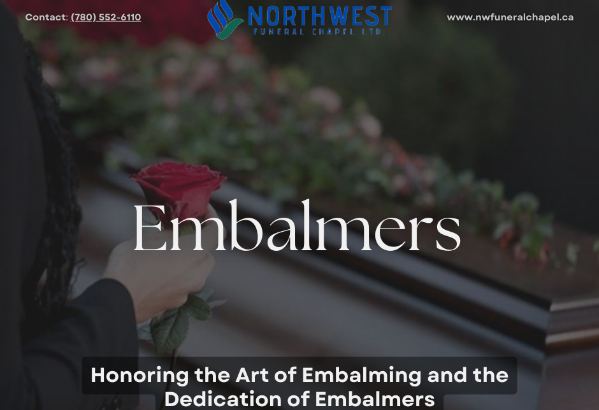The practice of embalming, the art and science of preserving the deceased, is as ancient as civilization itself. From the elaborate mummification rituals of ancient Egypt to the modern techniques used in funeral homes around the world, embalming has evolved into a sophisticated process that serves both practical and emotional purposes.
Historical Roots:
The origins of embalming can be traced back to ancient Egypt, where it was closely linked with religious beliefs about the afterlife. The Egyptians believed that the preservation of the body was essential for the soul to continue its journey in the afterlife.
Evolution of Techniques:
Over the centuries, the practice of embalming spread to other cultures and civilizations, each developing its own methods and rituals. In Europe, during the Middle Ages, embalming was primarily used for royalty and the nobility, often involving the use of spices and herbs to mask the odour of decomposition.
Modern Embalming:
Today, embalming is a standard practice in many cultures around the world, though the techniques have become much more advanced. Modern embalming helps to slow down the decomposition process but also allows for the body to be presented in a more lifelike manner during the funeral service.
Cultural and Religious Significance:
While embalming is often associated with Western funeral practices, many cultures have their traditions surrounding the preservation of the dead. In some cultures, the bodies of the deceased are traditionally buried immediately, without any form of preservation.
Embalmers:
An embalmer is a professional who specializes in the art and science of embalming, the process of preserving a deceased person’s body to delay decomposition and restore a more lifelike appearance. Embalmers are typically employed by funeral homes or mortuaries and work closely with funeral directors to prepare deceased bodies for viewing, burial, or cremation.
Embalmers are trained in anatomy, biology, and chemistry and must adhere to strict standards and regulations regarding the handling and treatment of deceased bodies. They are skilled in the use of embalming fluids and perform cosmetic procedures, such as applying makeup and styling hair, to enhance the deceased person’s appearance for viewing.
In addition to their technical skills, embalmers must also possess compassion and empathy, as they often work closely with grieving families. They play a crucial role in helping families navigate the funeral process and providing support during a difficult time.
Overall, embalmers play a vital role in the funeral industry, ensuring that the deceased are treated with dignity and respect as they are prepared for their final resting place.
Final words
Embalming is a practice that has evolved over thousands of years, with deep cultural and religious significance. While it may be controversial in some respects, it remains an important part of many funeral traditions around the world. Whether viewed as a practical necessity or a spiritual ritual, embalming continues to play a vital role in how we honour and remember the departed.
Embalmers’ work is often overlooked, but it is truly invaluable. They provide comfort to grieving families by preserving the dignity of their loved ones in their final moments. Their skill and compassion help ease the pain of loss and allow for a proper farewell.
Embalmers use their knowledge and expertise to preserve the memory of those who have passed. Embalmers’ attention to detail ensures that every aspect of the process is handled with care and respect.
Thank you for your dedication to this important and often challenging work. You are truly unsung heroes, and your efforts do not go unnoticed.

